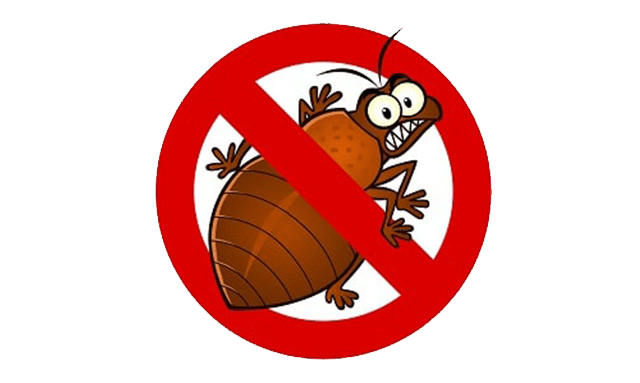На вопрос отвечает автор портала: Диванный клоп: фото крупным планом взрослых особей…
Bedworms are a suborder of bed bugs that belong to the category of semi-hardworms. They have individual characteristics that allow you to pay attention to such insects in order to start fighting in time:
- rounded body, slightly elongated and flat;
- length is less than 1 cm;
- 1 pair of antennae, 6 limbs;
- the back is brown.
There is another difference - the structure of the abdomen, determined by the sex of the insects.
Larvae have many features in common with adults (adult parasites); they also have 1 pair of antennae, an oval body, and 6 limbs. However, juveniles are much lighter in color (milky), and their body length is no more than 1 mm. These features change as the pests develop.
Parasites go through an incomplete cycle (it is called the insect transformation pathway). As a result, the larva does not become a pupa. It goes through several stages of maturation. At the last of them it becomes a nymph, and after that it becomes an imago.
Bed bugs begin to reproduce when they become sexually mature insects.
During mating, the male injures the chitinous covering of the female in the abdominal area and introduces seminal fluid, which will be stored in a special organ (Berleza). This gives the bed bugs the ability to reproduce while alone on an as yet uninfected object. The female uses her seminal fluid reserves to form eggs. Throughout her life, she lays up to 500 eggs. And the eggs are reliably fixed in different parts of the house, not only in the nest, which increases the survival rate of the insects.
Peculiarities of existence: life cycle, dependence on environmental conditions
Bed bugs are so called because of their eating habits. They live close to humans inside their sleeping quarters and often settle nearby. This contributes to other, "folk" names: apartment bed bugs, sofa bed bugs, linen bed bugs, but also furniture bed bugs, clothes bed bugs, and just house bugs. They can be found in different areas in the vicinity of the bed and couch:
- rug;
- switches;
- outlets;
- lighting fixtures;
- furniture: chest of drawers, closet, bedside tables, chairs;
- curtains;
- paintings, etc.
Longevity is 12 months, but it increases if living conditions change for the worse (it becomes cooler - the temperature drops to +20°C and keeps dropping). A warmer microclimate in the apartment is the reason for shorter life span. The shortest life cycle of insects that live in objects where the temperature is higher than +26°C is 10 months.
At the same time, the young develop very quickly, but also die quickly.
Bed bugs are "awake" at night, and their activity decreases during the day. For this reason, the bites are also found after midnight. You can find similar tracks on your body - they consist of 3-8 red spots (bites). This is how the parasites get a portion of blood, they gradually shift a few millimeters, having bitten once. Finding these marks is not difficult. They are located where the skin is not covered by clothing. It may seem that the pests do not bite everyone, but only some members of the family, but this is not true.
The parasites crawl on the person sleeping closest to the insect nest.
Bloodsuckers can go a long time without food - from a few days to many months. If you find them at this point, you would think that the parasites have long died, so much so that they dry out. However, when a human appears nearby, the insects gradually come back to life. During such a period, they are in a diapause phase.
Causes of human home and signs of object infestation
It is important to understand where the insects come from:
- from the neighbors;
- are brought in with the furniture and appliances;
- on clothing in a bag or suitcase;
- on animal hair.
However, even more often bloodsuckers climb into a person's home to find new sources of food or shelter if the neighbors are disinfecting. Signs of insects are typical and help you notice an infestation in time:
- bites on the skin (red itchy spots, often signs of allergies);
- thin shells of brown color - shells of larvae;
- excrement in the form of dark spots on various surfaces (sofa, bed, mattress, baseboards, inside furniture);
- white formations - eggs.
Cleaning will help get rid of the traces of life, but the infestation also has an odor. You can get rid of it only after the bed bugs are completely eliminated. It is necessary to pay attention to the symptoms of allergies:
- large spots;
- cones;
- swelling;
- painful sensations;
- breathing is impaired less frequently.
It is recommended that bites be treated with antihistamines, as well as local anti-pruritic and anti-inflammatory drugs.
To prevent the bites from appearing, get rid of the parasites with insecticides. If nothing helps, prayers and incantations are read. To prevent reinfestation, strong-smelling substances are effective.
The question is answered by the author of the portal: Pathways of entry of bed bugs into the house Parasites appear...
- Bedbugs
Bed bugs - how they look, how they differ from lice, and how to get rid of parasites quickly and effectively
from IrinaThe question is answered by the author of the portal: Bed bugs. The main signs To eradicate...
